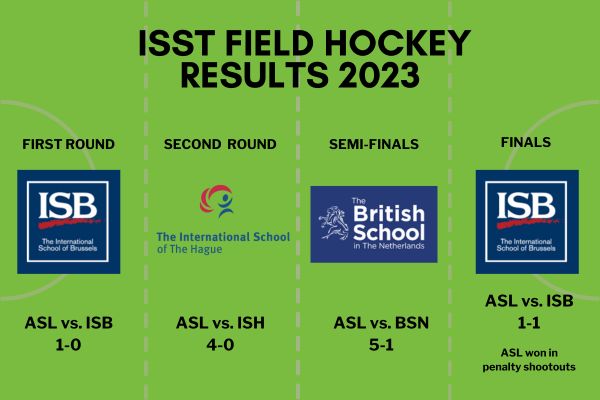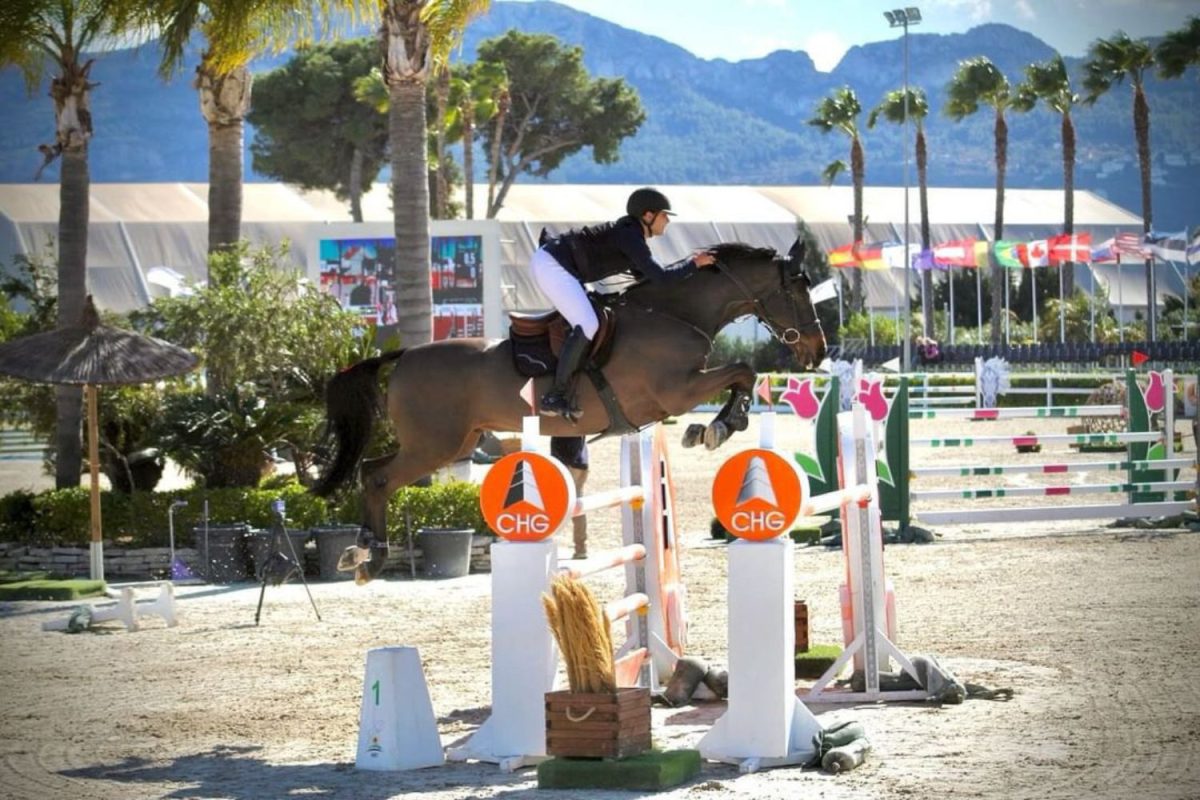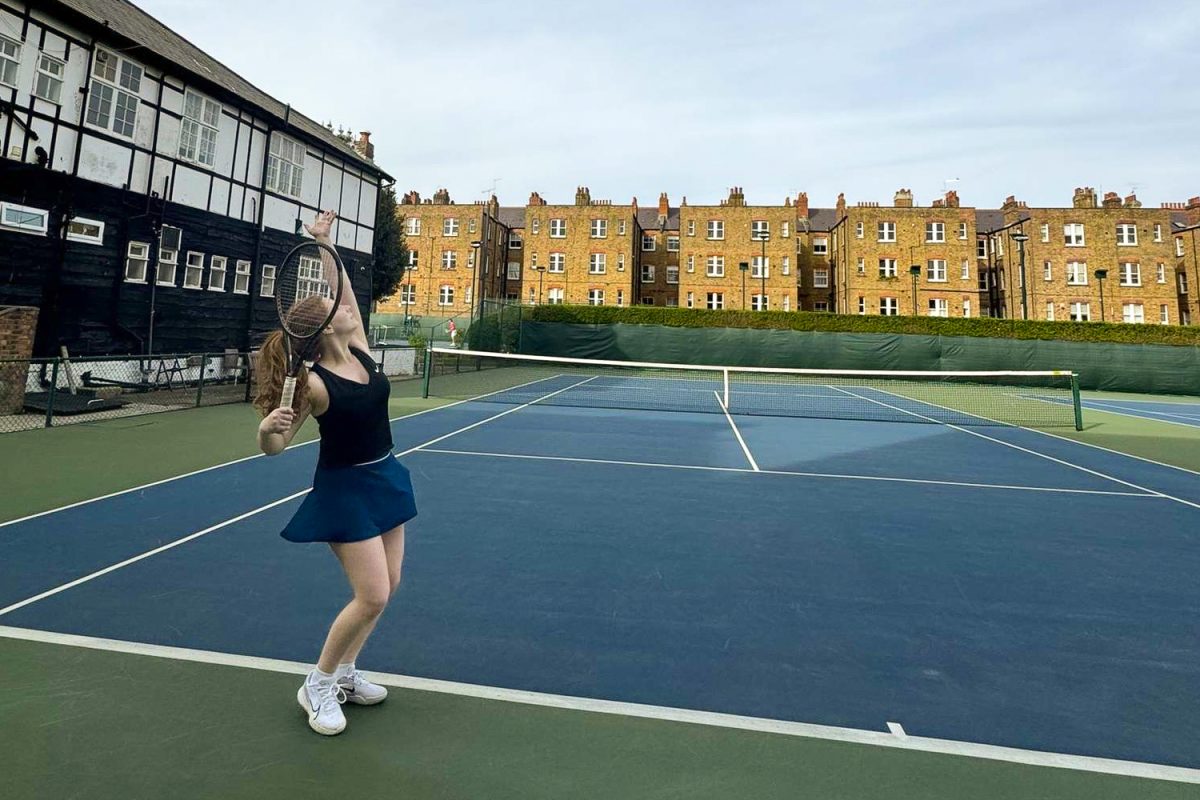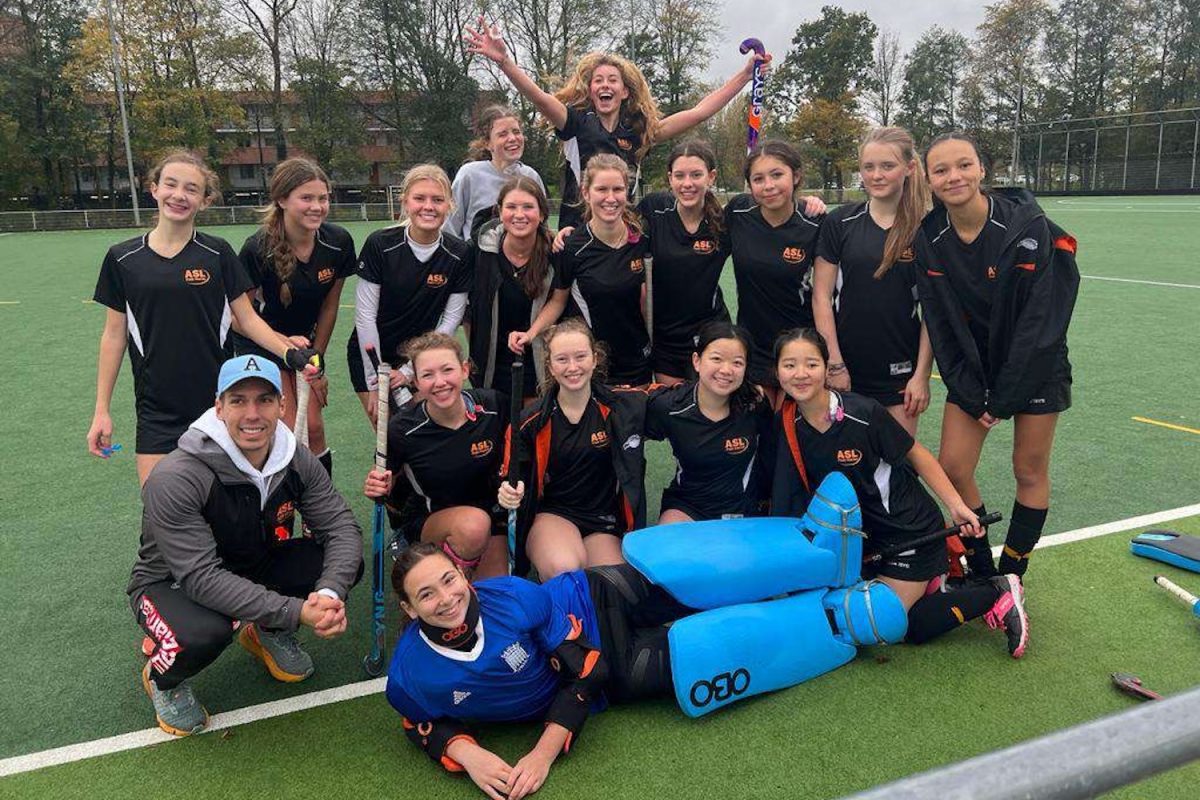“We’ve had whole seasons where field hockey didn’t score a single goal. Literally. That’s happened for multiple years in a row.”
Director of Athletics John Farmer said the reality of field hockey’s historic success had him in complete awe when he heard the news: field hockey had won ISSTs. Farmer said the win was “such an amazing achievement,” given the team last won the tournament in 1986.
Co-captain Celia Allen (’24) echoed Farmer’s sentiments and said she has yet to come to terms with the win.
“I was in shock,” Allen said. “ I couldn’t even process it. Because I just didn’t, like, think it was possible. And honestly, I still haven’t really processed it.”
Annika Gilbert (’27) said the team was “automatically the underdogs going into the season” given several British schools in London played year-round and had a more developed field hockey program.
Allen said in addition to less practice time, the changing demographics of the team meant the coaches initially centered practice around fundamental skills.
“Since we had a lot of new freshmen and new upperclassmen at the beginning of the season we weren’t really connected,” Allen said. “At the beginning of the season, we had to focus more on like the basics and coming together as a team.”
Farmer said from a managerial perspective, he applauded the team for remaining flexible since the Athletics Department could not offer the same venue to practice at every day, and the locations were often far from school.
“I give so much credit to them given the fact that by and large… field hockey has such a challenge, just to operate as a team successfully given they can, on any given week, have practice in multiple locations,” Farmer said.
Gilbert said many of their competitors had convenient access to fields, making it easier for them to practice often.
Moreover, Farmer said another challenge the team had previously faced was the frequent coach changes, making it difficult for the team to establish a consistent rhythm.
“There was a period where we didn’t have the same head coach for four years in a row for hockey, which also can have, you know, a detrimental effect,” Farmer said. “It’s hard to build a program if there is a new person kind of reinventing the wheel or reestablishing the culture year in and year out.”
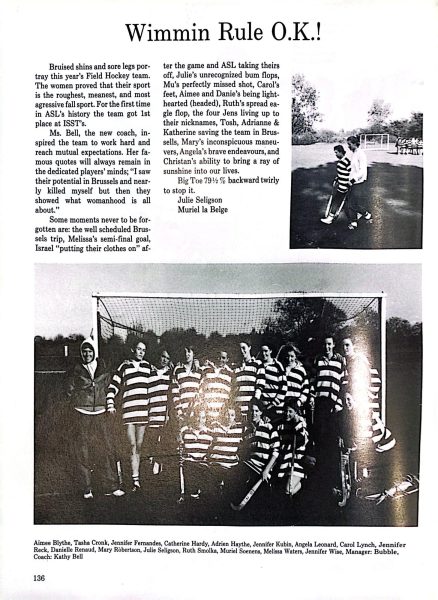
This year, the team had a consistent coaching staff, which Farmer said worked to the team’s advantage going into ISSTs.
“We’ve now had the same coaches for three years and they love the school, they love the team, they love the Eagles,” Farmer said. “Likewise, by all accounts, the student-athletes and families love them, and there’s a real great atmosphere and vibe that’s created there.”
Gilbert, one of the youngest players on the team, said she was initially intimidated but quickly realized “the team was really welcoming for all ages.” However, Gilbert said she was often under duress given her position as the team’s goalkeeper.
“Going into ISSTs, I don’t think I’ve ever felt that level of stress before,” Gilbert said. “I know we’re one big team, but I felt so much pressure given that the rest of our season we hadn’t done that well.”
The team’s final match against the International School of Brussels culminated in a 1-1 tie, which meant the game went to penalty shootouts. Gilbert said she was ecstatic to be able to help her team win the title through her performance in the last minutes of the tournament.
For Allen, finishing her field hockey career in the High School on a win was the perfect ending.
“I was very happy to go out winning my senior season,” Allen said. “Last year if you told me we had won I would have never believed it.”
Ultimately, Gilbert said the win for field hockey was historic. Field hockey was the only fall ISST team to bring back a title this year, which she said made the victory even sweeter.
“We couldn’t have won on a better year because no other team had won,” Gilbert said. “It was perfect. Nothing could have gone better.”
